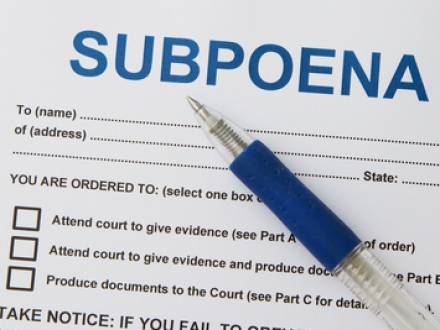Recent Blog Posts
Do I Have to Prove Fault in an Illinois Divorce?
 Divorce is never easy, but the idea of proving that your spouse caused the marriage to fail can make the process seem even more daunting. You might be wondering if you need to gather evidence of infidelity, financial misconduct, or abuse just to end your marriage. The good news is that Illinois law no longer requires you to assign blame. If you are thinking of filing, an Illinois family law attorney can help you understand how fault factors into a divorce and guide you through the necessary legal steps.
Divorce is never easy, but the idea of proving that your spouse caused the marriage to fail can make the process seem even more daunting. You might be wondering if you need to gather evidence of infidelity, financial misconduct, or abuse just to end your marriage. The good news is that Illinois law no longer requires you to assign blame. If you are thinking of filing, an Illinois family law attorney can help you understand how fault factors into a divorce and guide you through the necessary legal steps.
Is Illinois a No-Fault Divorce State?
Illinois follows a no-fault divorce system, meaning neither spouse is required to prove that the other did something wrong to cause the marriage to fail. Instead, state law requires that the couple has "irreconcilable differences" that have led to the breakdown of the marriage.
Under the Illinois Marriage and Dissolution of Marriage Act, the court must determine whether the marriage has broken down beyond the point of repair before granting a divorce. The law assumes this breakdown has happened if the spouses have lived separately for at least six months, although they do not have to live in different homes.
Can My Spouse Claim Part of My Business in a Divorce?
 Divorce is already challenging, but the stakes can become even higher when a business is involved. Many business owners fear that years of hard work could amount to nothing if their business is divided in a divorce settlement, potentially threatening their financial future. Whether or not a spouse can claim part of a business depends on whether it is classified as marital or separate property under state law. Understanding how business divisions work can help owners take proactive steps to protect their assets. An Illinois divorce attorney can provide strategic guidance about navigating this intricate process and working toward an appropriate outcome.
Divorce is already challenging, but the stakes can become even higher when a business is involved. Many business owners fear that years of hard work could amount to nothing if their business is divided in a divorce settlement, potentially threatening their financial future. Whether or not a spouse can claim part of a business depends on whether it is classified as marital or separate property under state law. Understanding how business divisions work can help owners take proactive steps to protect their assets. An Illinois divorce attorney can provide strategic guidance about navigating this intricate process and working toward an appropriate outcome.
Is My Business Marital or Separate Property?
Illinois follows equitable distribution laws, which means that property is not automatically divided equally, but is instead divided fairly. Factors such as the length of the marriage, each spouse’s marital contributions, and each spouse’s financial circumstances are considered when making this determination. Whether a business will be divided depends on whether it is classified as marital property or separate property.
How Can I Change My Ex’s Parenting Time in Illinois?
 A parenting time schedule should serve the best interests of the child, but sometimes, life changes may make an adjustment necessary. Whether you are dealing with a new work schedule, a relocation, or concerns about your child’s well-being, modifying parenting time requires legal action. In Illinois, courts will only grant modifications if certain conditions are met. If you need guidance with altering parenting time, an Illinois family law attorney can help you understand the process.
A parenting time schedule should serve the best interests of the child, but sometimes, life changes may make an adjustment necessary. Whether you are dealing with a new work schedule, a relocation, or concerns about your child’s well-being, modifying parenting time requires legal action. In Illinois, courts will only grant modifications if certain conditions are met. If you need guidance with altering parenting time, an Illinois family law attorney can help you understand the process.
When Can Parenting Time Be Modified in Illinois?
Under state law, a court will only modify parenting time under specific circumstances. If both parents agree to the change, they can submit a request for court approval. However, if the other parent does not agree, you must prove that a modification is necessary.
Can I File for Divorce if My Spouse Does Not Agree?
 Divorce can be complicated, and it can become even more difficult when one spouse refuses to cooperate. If you have found yourself in this situation, you may wonder whether you can proceed with a divorce without your spouse’s agreement. While an uncooperative spouse can delay the process, he or she cannot stop it entirely. The guidance of a knowledgeable Illinois divorce lawyer can make all the difference when it comes to navigating this process and protecting your rights.
Divorce can be complicated, and it can become even more difficult when one spouse refuses to cooperate. If you have found yourself in this situation, you may wonder whether you can proceed with a divorce without your spouse’s agreement. While an uncooperative spouse can delay the process, he or she cannot stop it entirely. The guidance of a knowledgeable Illinois divorce lawyer can make all the difference when it comes to navigating this process and protecting your rights.
Do Both Spouses Have to Agree to Divorce in Illinois?
Illinois law does not require mutual consent in order to divorce. A spouse may file for divorce based on irreconcilable differences, meaning the marriage is beyond repair.
If one spouse contests the divorce, the court may require proof that the marriage has broken down. However, if the spouses have lived separately for at least six months, the court will presume irreconcilable differences exist and allow the divorce to proceed. This means that even if your spouse refuses to participate, the court can still grant a divorce.
Unique Property Division Challenges for High-Asset Divorces
 Dividing assets in a divorce is rarely simple, but high-asset divorces present additional layers that can make the process more complex. When significant wealth is involved, property division can often include investments, stock options, luxury assets, business interests, and more. Without careful financial analysis and legal guidance, divorcing spouses risk overlooking valuable assets or agreeing to an unfair settlement. If you are navigating a high-asset divorce, a skilled Illinois divorce lawyer can help with these challenges and protect your financial interests.
Dividing assets in a divorce is rarely simple, but high-asset divorces present additional layers that can make the process more complex. When significant wealth is involved, property division can often include investments, stock options, luxury assets, business interests, and more. Without careful financial analysis and legal guidance, divorcing spouses risk overlooking valuable assets or agreeing to an unfair settlement. If you are navigating a high-asset divorce, a skilled Illinois divorce lawyer can help with these challenges and protect your financial interests.
How Does State Law Impact High-Asset Property Division?
In Illinois, marital property is divided fairly, rather than an automatic even split. Under this equitable distribution model, courts consider factors like the duration of the marriage, each spouse’s contributions to the marriage, and both spouses’ financial circumstances when determining a fair property division.
How to Handle Parenting Time When One Parent Moves
 Relocation can complicate custody arrangements, especially when one parent moves far away. Whether it is across the state or the country, relocation can create emotional and logistical challenges for both parents and children. A new job, family commitments, or a fresh start may make the move necessary, but how will it affect parenting time? An Illinois family law attorney can help parents navigate the legal relocation process and create a plan that allows for meaningful parent-child relationships despite distance.
Relocation can complicate custody arrangements, especially when one parent moves far away. Whether it is across the state or the country, relocation can create emotional and logistical challenges for both parents and children. A new job, family commitments, or a fresh start may make the move necessary, but how will it affect parenting time? An Illinois family law attorney can help parents navigate the legal relocation process and create a plan that allows for meaningful parent-child relationships despite distance.
What Does Illinois Law Say About Parental Relocation?
Illinois law requires the parent with primary custody to seek court approval before moving a significant distance with their child. The law defines relocation as a move:
What Happens if a Custody Order Is Violated?
 When parents separate or divorce, custody orders provide structure and stability for their children. However, when one parent ignores the court-ordered arrangement, it can lead to confusion, stress, and potential harm to the child’s well-being. Violating a custody order is not only unfair but also an offense that can carry serious legal consequences. If you are facing a custody dispute, an Illinois family law attorney can help you take the steps necessary to enforce the court order and protect your relationship with your child.
When parents separate or divorce, custody orders provide structure and stability for their children. However, when one parent ignores the court-ordered arrangement, it can lead to confusion, stress, and potential harm to the child’s well-being. Violating a custody order is not only unfair but also an offense that can carry serious legal consequences. If you are facing a custody dispute, an Illinois family law attorney can help you take the steps necessary to enforce the court order and protect your relationship with your child.
What Actions Constitute a Custody Violation?
A custody violation occurs when a parent disregards the terms of a court-ordered parenting plan. Some of the most common types of violations include:
-
Failing to return the child at the scheduled time
Who Gets What in a High Net Worth Divorce?
 Divorcing with significant wealth at stake is rarely a simple process. High-net-worth divorces involve intricate financial matters, from dividing luxury real estate and investment portfolios to determining business ownership rights. Every asset must be carefully reviewed to ensure a fair distribution while safeguarding your long-term financial interests. Courts will weigh multiple factors when determining who gets what, so it is important to seek the guidance of a strategic Illinois divorce lawyer to protect your wealth during the process.
Divorcing with significant wealth at stake is rarely a simple process. High-net-worth divorces involve intricate financial matters, from dividing luxury real estate and investment portfolios to determining business ownership rights. Every asset must be carefully reviewed to ensure a fair distribution while safeguarding your long-term financial interests. Courts will weigh multiple factors when determining who gets what, so it is important to seek the guidance of a strategic Illinois divorce lawyer to protect your wealth during the process.
How Do Illinois Courts Divide Assets in a High Net Worth Divorce?
Illinois follows equitable distribution laws, meaning courts divide marital property fairly rather than enforcing an automatic 50/50 split. To make this decision, judges will consider factors such as:
How Can Subpoenas Help in a High-Conflict Divorce?
 Divorce is rarely easy, but a high-conflict divorce takes challenges to a whole new level. In these emotionally charged and contentious cases, disputes over finances, custody, and assets can quickly spiral out of control. When trust is broken, and one party withholds information, reaching a fair resolution without intervention becomes nearly impossible.
Divorce is rarely easy, but a high-conflict divorce takes challenges to a whole new level. In these emotionally charged and contentious cases, disputes over finances, custody, and assets can quickly spiral out of control. When trust is broken, and one party withholds information, reaching a fair resolution without intervention becomes nearly impossible.
This is where subpoenas come into play. From uncovering hidden assets to securing key witness statements, subpoenas can help cut through the chaos and clarify complex legal battles. If you are going through a high-conflict divorce, an experienced Illinois divorce lawyer can ensure that this legal tool is effectively used to obtain the information you need for a fair outcome.
What is a Subpoena and How is it Used in Divorce?
A subpoena is a legal document that requires a person to provide specific documents or testify in court. Subpoenas are particularly useful in high-conflict divorces where one spouse may withhold financial records, communication logs, or other critical information. By using a subpoena, attorneys can ensure transparency and give the court the information it needs to make a fair decision.
How Will a Divorce Affect My Taxes?
 Divorce can impact your tax situation in ways that might surprise you. From changing your filing status to determining who claims the children as dependents, divorce can complicate tax season if you are not prepared. To avoid costly mistakes, it is very important to understand the tax implications of your divorce. A knowledgeable Illinois divorce lawyer can help you navigate these changes and explain what they may mean for your personal circumstances.
Divorce can impact your tax situation in ways that might surprise you. From changing your filing status to determining who claims the children as dependents, divorce can complicate tax season if you are not prepared. To avoid costly mistakes, it is very important to understand the tax implications of your divorce. A knowledgeable Illinois divorce lawyer can help you navigate these changes and explain what they may mean for your personal circumstances.
What Is My Filing Status After a Divorce?
Your tax filing status will depend on your marital status as of December 31 of the tax year. If your divorce is finalized on or before December 31, you must file as either "single" or "head of household". If you are legally married on December 31, you may file as "married filing jointly" or "married filing separately."












